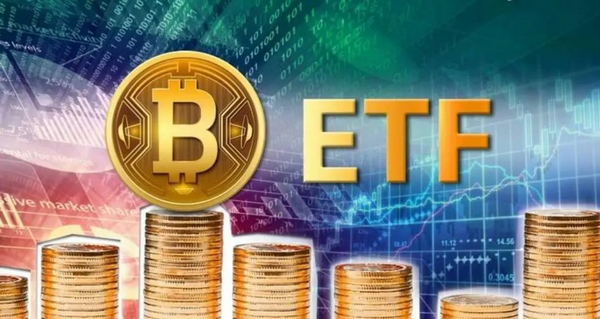-
 Bitcoin
Bitcoin $87,356.7866
2.55% -
 Ethereum
Ethereum $1,638.7142
1.49% -
 Tether USDt
Tether USDt $1.0000
0.00% -
 XRP
XRP $2.1170
1.59% -
 BNB
BNB $603.9416
1.60% -
 Solana
Solana $140.7449
-0.10% -
 USDC
USDC $1.0000
0.01% -
 Dogecoin
Dogecoin $0.1612
1.47% -
 TRON
TRON $0.2446
0.70% -
 Cardano
Cardano $0.6403
1.48% -
 Chainlink
Chainlink $13.5386
3.52% -
 UNUS SED LEO
UNUS SED LEO $9.4122
0.71% -
 Avalanche
Avalanche $19.9770
0.38% -
 Stellar
Stellar $0.2522
2.41% -
 Toncoin
Toncoin $3.0278
0.79% -
 Shiba Inu
Shiba Inu $0.0...01274
3.15% -
 Sui
Sui $2.2177
2.58% -
 Hedera
Hedera $0.1707
2.77% -
 Bitcoin Cash
Bitcoin Cash $338.7540
-0.36% -
 Polkadot
Polkadot $3.9033
-0.91% -
 Hyperliquid
Hyperliquid $18.1086
-1.54% -
 Litecoin
Litecoin $78.6965
2.64% -
 Bitget Token
Bitget Token $4.5466
-0.88% -
 Dai
Dai $0.9999
0.00% -
 Ethena USDe
Ethena USDe $0.9993
0.02% -
 Pi
Pi $0.6368
-2.12% -
 Monero
Monero $215.6237
-0.53% -
 Uniswap
Uniswap $5.4295
1.63% -
 Pepe
Pepe $0.0...07859
4.81% -
 Aptos
Aptos $5.1258
4.53%
will all bitcoin etfs perform the same
Bitcoin exchange-traded funds (ETFs) exhibit varying performance due to underlying asset, management strategy, and market dynamics, making careful evaluation essential for investors.
Nov 11, 2024 at 08:19 am

No, All Bitcoin ETFs Will Not Perform the Same
Bitcoin exchange-traded funds (ETFs) are investment vehicles that track the price of bitcoin. They offer investors a way to gain exposure to bitcoin without having to buy and store the cryptocurrency themselves.
However, not all bitcoin ETFs are created equal. Some ETFs track the price of spot bitcoin, while others track the price of bitcoin futures. Additionally, some ETFs are actively managed, while others are passively managed.
As a result of these differences, the performance of bitcoin ETFs can vary significantly. For example, spot bitcoin ETFs will typically track the price of bitcoin more closely than bitcoin futures ETFs. This is because spot bitcoin ETFs are directly invested in bitcoin, while bitcoin futures ETFs are invested in contracts that are based on the future price of bitcoin.
Actively managed bitcoin ETFs may also outperform passively managed bitcoin ETFs. This is because actively managed ETFs are able to make strategic trades in order to generate a higher return for investors.
Ultimately, the performance of a bitcoin ETF will depend on a number of factors, including the underlying asset, the ETF's management strategy, and the market conditions. Investors should carefully consider all of these factors before investing in a bitcoin ETF.
Here are some additional reasons why all bitcoin ETFs will not perform the same:
- Fees: Bitcoin ETFs charge different fees, which can eat into returns.
- Tracking error: Bitcoin ETFs may not perfectly track the price of bitcoin, which can lead to underperformance.
- Liquidity: Some bitcoin ETFs may not be very liquid, which can make it difficult to buy and sell shares.
Investors should carefully consider all of these factors before investing in a bitcoin ETF.
Disclaimer:info@kdj.com
The information provided is not trading advice. kdj.com does not assume any responsibility for any investments made based on the information provided in this article. Cryptocurrencies are highly volatile and it is highly recommended that you invest with caution after thorough research!
If you believe that the content used on this website infringes your copyright, please contact us immediately (info@kdj.com) and we will delete it promptly.
- An Aptos community member submitted a proposal to slash staking rewards for the network's native token
- 2025-04-21 13:50:14
- The Ultimate Guide to BTFD Coin (BTFD): ROI Potential, Presale Stages, and More
- 2025-04-21 13:50:14
- TRON (TRX) Price Broke Above Descending Trendline Resistance Targeting $0.2800
- 2025-04-21 13:45:14
- VOXEL token price skyrockets by more than 50% after a BitGet malfunction causes the VOXE/USDT perpetual contract to surpass that of Bitcoin
- 2025-04-21 13:45:14
- Why Is Least Privilege Fundamental to Creating Safe Environments?
- 2025-04-21 13:40:14
- Top Crypto Gainers Today - JUP, WAVES, FXS, and DOT Are Outperforming the Market
- 2025-04-21 13:40:14
Related knowledge

What is the difference in returns between long-term holding of a Bitcoin ETF and holding Bitcoin directly?
Apr 09,2025 at 04:15am
When considering the difference in returns between long-term holding of a Bitcoin ETF and holding Bitcoin directly, it's essential to understand the nuances and factors that affect each investment option. Both approaches have their unique advantages and potential drawbacks, which can significantly impact the overall returns over time. Understanding Bitc...

How is the "roll cost" of a futures Bitcoin ETF generated?
Apr 08,2025 at 01:22pm
The 'roll cost' of a futures Bitcoin ETF is a critical concept for investors to understand, as it directly impacts the performance of the ETF. In this article, we will delve into the mechanics of how the roll cost is generated, exploring the underlying processes and factors that contribute to this cost. Understanding Futures ContractsFutures contracts a...

How can the premium or discount of a Bitcoin ETF be narrowed through an arbitrage mechanism?
Apr 09,2025 at 12:07am
Arbitrage mechanisms play a crucial role in narrowing the premium or discount of a Bitcoin Exchange Traded Fund (ETF). Understanding how these mechanisms work can provide valuable insights into the dynamics of Bitcoin ETFs and their relationship with the underlying asset. This article will delve into the specifics of how arbitrage can be used to align t...

What factors affect the bid-ask spread of a Bitcoin ETF?
Apr 08,2025 at 08:50pm
The bid-ask spread of a Bitcoin Exchange Traded Fund (ETF) is a critical metric that investors and traders closely monitor. It represents the difference between the highest price a buyer is willing to pay (bid) and the lowest price a seller is willing to accept (ask). Several factors influence this spread, and understanding them can help investors make ...

How is the seed capital of a Bitcoin ETF used?
Apr 10,2025 at 02:15pm
The seed capital of a Bitcoin ETF plays a crucial role in the establishment and operation of the fund. This initial investment is used to create the fund's underlying assets, manage operational costs, and ensure the ETF can start trading on an exchange. Understanding how this seed capital is utilized provides insight into the mechanics of Bitcoin ETFs a...

What is the difference between "physically backed" and "synthetic" Bitcoin ETFs in terms of holding assets?
Apr 10,2025 at 04:56pm
Bitcoin Exchange Traded Funds (ETFs) have become a popular way for investors to gain exposure to the cryptocurrency market without directly owning the underlying asset. There are two primary types of Bitcoin ETFs: physically backed and synthetic. Understanding the differences between these two types, particularly in terms of how they hold assets, is cru...

What is the difference in returns between long-term holding of a Bitcoin ETF and holding Bitcoin directly?
Apr 09,2025 at 04:15am
When considering the difference in returns between long-term holding of a Bitcoin ETF and holding Bitcoin directly, it's essential to understand the nuances and factors that affect each investment option. Both approaches have their unique advantages and potential drawbacks, which can significantly impact the overall returns over time. Understanding Bitc...

How is the "roll cost" of a futures Bitcoin ETF generated?
Apr 08,2025 at 01:22pm
The 'roll cost' of a futures Bitcoin ETF is a critical concept for investors to understand, as it directly impacts the performance of the ETF. In this article, we will delve into the mechanics of how the roll cost is generated, exploring the underlying processes and factors that contribute to this cost. Understanding Futures ContractsFutures contracts a...

How can the premium or discount of a Bitcoin ETF be narrowed through an arbitrage mechanism?
Apr 09,2025 at 12:07am
Arbitrage mechanisms play a crucial role in narrowing the premium or discount of a Bitcoin Exchange Traded Fund (ETF). Understanding how these mechanisms work can provide valuable insights into the dynamics of Bitcoin ETFs and their relationship with the underlying asset. This article will delve into the specifics of how arbitrage can be used to align t...

What factors affect the bid-ask spread of a Bitcoin ETF?
Apr 08,2025 at 08:50pm
The bid-ask spread of a Bitcoin Exchange Traded Fund (ETF) is a critical metric that investors and traders closely monitor. It represents the difference between the highest price a buyer is willing to pay (bid) and the lowest price a seller is willing to accept (ask). Several factors influence this spread, and understanding them can help investors make ...

How is the seed capital of a Bitcoin ETF used?
Apr 10,2025 at 02:15pm
The seed capital of a Bitcoin ETF plays a crucial role in the establishment and operation of the fund. This initial investment is used to create the fund's underlying assets, manage operational costs, and ensure the ETF can start trading on an exchange. Understanding how this seed capital is utilized provides insight into the mechanics of Bitcoin ETFs a...

What is the difference between "physically backed" and "synthetic" Bitcoin ETFs in terms of holding assets?
Apr 10,2025 at 04:56pm
Bitcoin Exchange Traded Funds (ETFs) have become a popular way for investors to gain exposure to the cryptocurrency market without directly owning the underlying asset. There are two primary types of Bitcoin ETFs: physically backed and synthetic. Understanding the differences between these two types, particularly in terms of how they hold assets, is cru...
See all articles






















































































